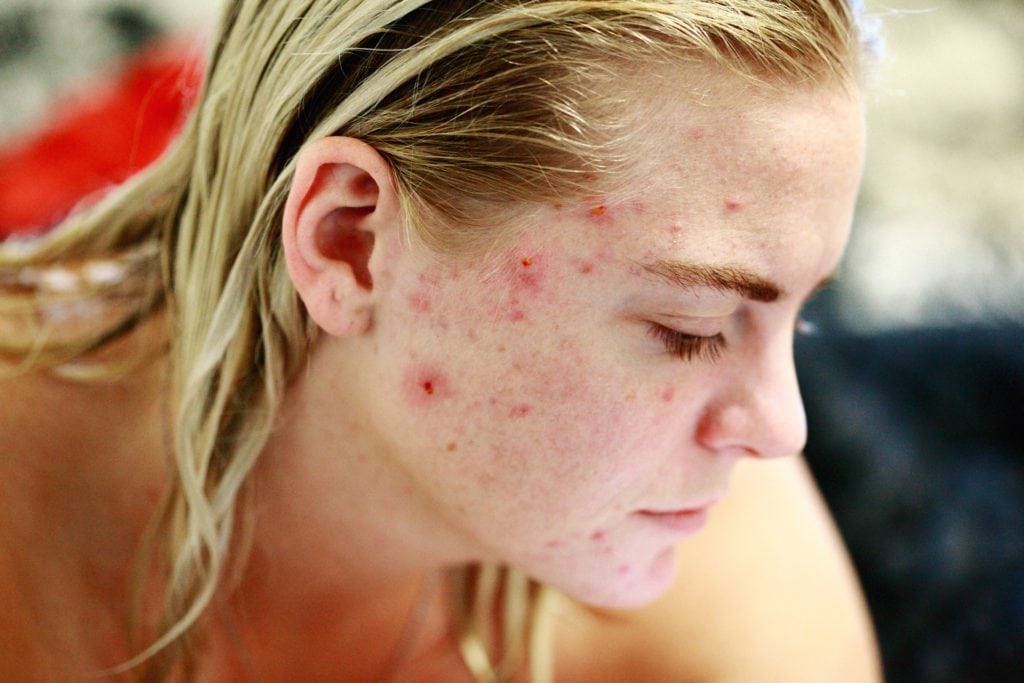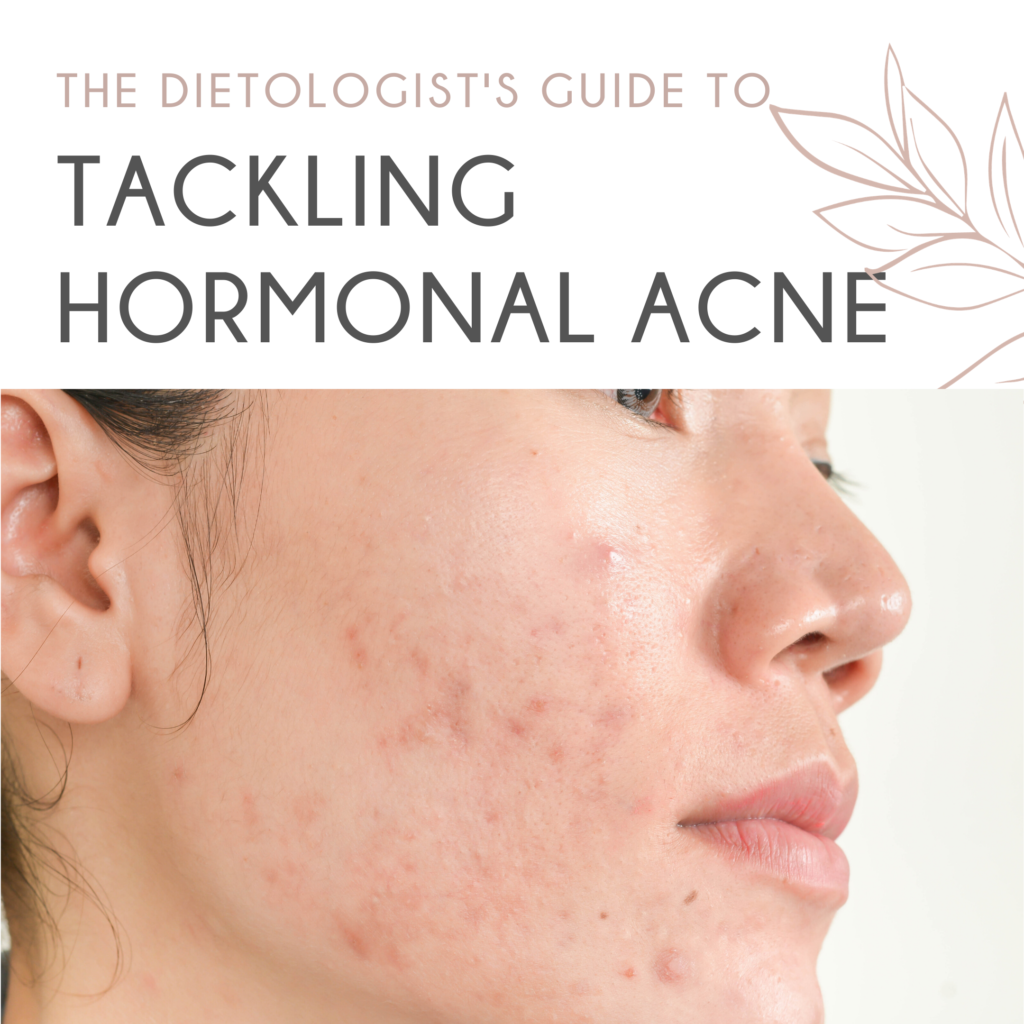To all my ladies out there suffering with acne, I can relate! This is something that has always followed me throughout puberty and into adulthood. It can be very upsetting, stressful and isolating when you just can’t seem to fix it no matter how many creams or medications you try, trust me I’ve tried them all!
So how can what we eat help to control this skin nightmare?
What is acne?
Acne is the most common skin condition found in men and women. Acne is caused by an overproduction of sebum. Sebum is an oil that is designed to prevent drying out of the skin. When excess sebum is produced, it combines with dead skin cells to clog up your pores and form those dreaded pimples.
Acne can be caused by many different things. These include:
- Increases in testosterone during puberty or due to PCOS.
- Bacterial infection (Tanghetti, 2013)
- Genetics (Di Landro et al., 2012)
- High levels of stress (Jovic at el., 2017)
Too often diet is blamed for worsening acne, but is this actually true?
Unfortunately, we still aren’t 100% sure. There are big gaps in the current research and further research is needed. So, I don’t feel comfortable naming diet as a direct cause of acne, but I am here to help clear up things you may be reading in the media.
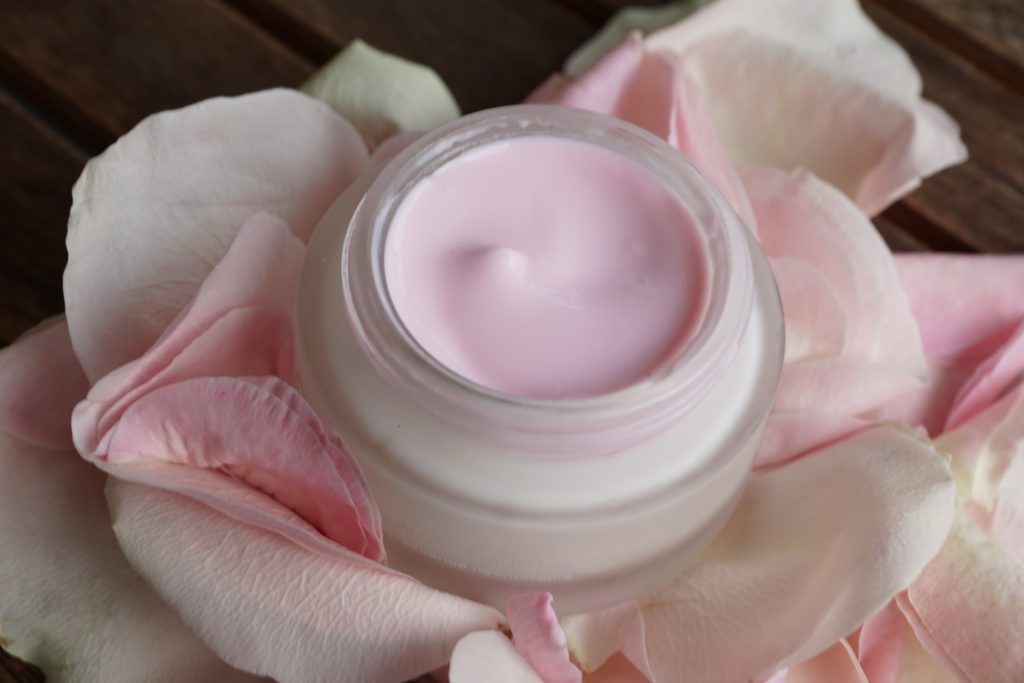
(1) Dairy and hormonal acne
Over the years, there has been much speculation about the effect dairy products have on developing acne. A lot of studies have been done, however, the results rely on participants recalling their diet from years previously.
Not sure about you, but most people struggle to tell me what they yesterday or the last week accurately let alone years ago!
This data is not reliable enough to suggest eliminating dairy from your diet completely, as the benefits of the high quality protein, calcium, magnesium and vitamin B2 in the diet, outweigh the possible negatives.
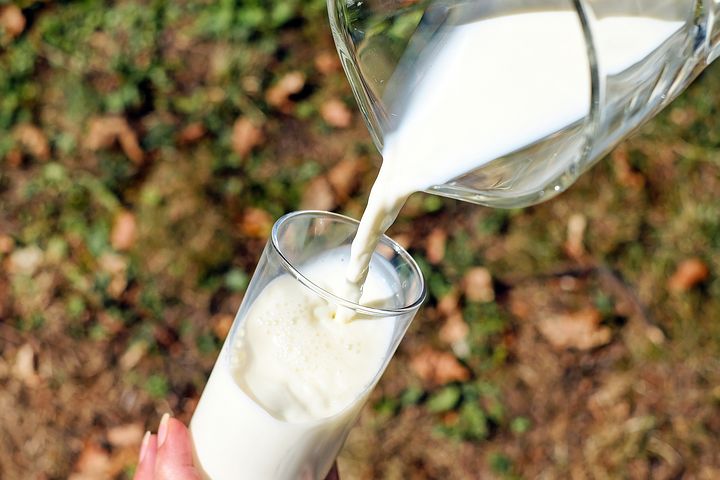
However, if you have found that eliminating dairy from your diet works for you, then go for it! Just remember, dairy-free diets are often not adequate in calcium so please speak to a dietitian to discuss alternate calcium sources or supplementation.
(2) Whey protein and hormonal acne
Whey protein is one of the proteins found in milk.
In 2013, a study involving 30 participants found that the use of whey protein as a protein supplement led to the development of acne. However, this sample size was very small and the results are not reliable enough to discourage the use of whey protein powders to control acne.
My best piece of advice, try to eat whole proteins like lean meats, fish and eggs and don’t rely on protein supplements all the time!
(3) Sugar and hormonal acne
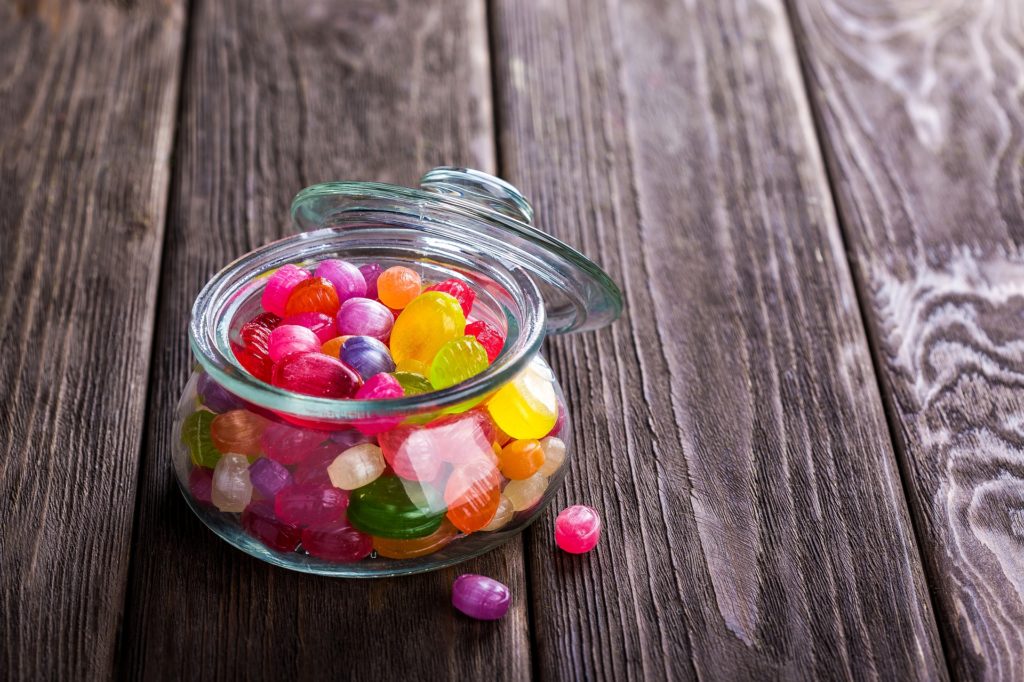
Recently high glycaemic index (GI) diets have been the talk of the acne town. High GI carbohydrate foods are those that release glucose quickly and causes a rapid spike in blood sugar levels and an even quicker drop. These foods include, refined sugar, soft drinks, lollies, chocolate, jasmine rice, white bread and more.
I mean, who’s Mum hasn’t told them that the chocolate bar is going to break them out? So, was your Mum right after all?
Cerman et al. (2016) found that if participants ate more high GI foods this led to a decrease in circulating adiponectin levels. Adiponectin is a hormone that has anti-inflammatory properties, that means it works to reduce the effects of certain factors that cause inflammation. They found that acne sufferers have lower levels of adiponectin in their blood and concluded that a low GI diet was preferable to a high GI diet in acne sufferers.
Huang et al. (2019) also found that if people drank soft drinks every day their risk of acne increased. They put this down to the excess amounts of refined sugar from these drinks – that is a high GI option.

So… try and avoid refined sugar, excessively processed foods and those high GI foods if you want to control your acne.
(4) Eat a rainbow every day!
The best piece of advice I can give to those wanting to control acne is to eat a nutritionally dense, balanced diet that is rich in whole foods like fruit, vegetables, wholegrains, low fat dairy and lean meat, fish, eggs and meat alternatives. A diet like this helps to fight inflammation as these whole foods contain antioxidants.
Head to my 5 foods to help fight inflammation blog to read all about this.
In particular, it has been found that omega 3 fatty acids (yay, always here to save the day!) have been associated with acne improvement. Omega 3 fatty acids have anti-inflammatory properties that can have an overall positive effect on acne progression (Khayef et al., 2012). Try including oily fish in your diet or even trying a fish oil supplement if fish isn’t your thing!

Do you suffer with hormonal acne and have tried all the magic creams and diets out there with no avail? Grab my scientific strategies to help tackle hormonal acne from the inside out with my eGuide! Download yours today here for just $37 AUD/$25 USD.
Tackling hormonal acne eBook comes with a 5-day hormonal acne meal plan with recipes, plus everything you want to know about whether going dairy-free or starting a collagen supplement is worth the extra cash. Swipe your copy today and get started on acne-proofing your diet!
Co-written by Maddison Breen, Masters of Nutrition and Dietetics student from the University of Sydney. Connect with Maddi on LinkedIn.

